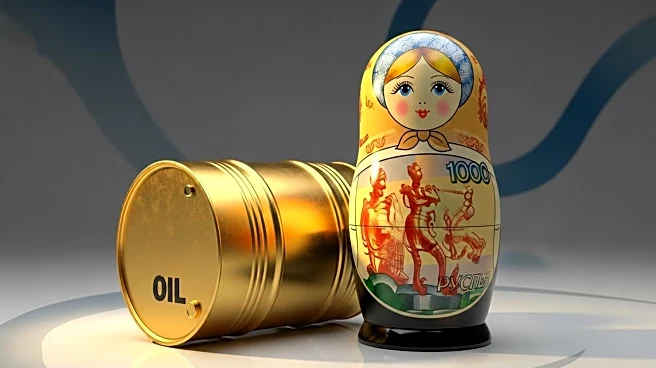What's Happening?
The Russian rouble has reached its strongest level against the U.S. dollar since early September, marking a 2% increase to 80.85 per dollar. This rise is attributed to expectations of a slower pace of interest rate cuts by Russia's central bank and increased sales of Russian oil. In September, Russia boosted its oil exports via western ports by 25% compared to August, driven by refinery outages due to Ukrainian drone attacks. Analysts suggest that the demand for Russian oil and the anticipated slower easing of monetary policy are supporting the rouble's strength.
Why It's Important?
The strengthening of the Russian rouble against the U.S. dollar has significant implications for international trade and economic relations. A stronger rouble can affect the competitiveness of Russian exports, particularly oil, which is a major revenue source for the country. This development may also influence global oil prices and impact energy markets, especially in Europe and Asia. Additionally, the rouble's performance could affect foreign investment in Russia and the country's ability to manage its economic policies amid geopolitical tensions.
What's Next?
The future trajectory of the rouble will likely depend on several factors, including the central bank's monetary policy decisions and the ongoing geopolitical situation. If the central bank continues to slow its interest rate cuts, the rouble may maintain its strength. However, any changes in global oil demand or further geopolitical developments could alter this trend. Stakeholders, including international investors and energy companies, will be closely monitoring these factors to assess their impact on the rouble and the broader economic landscape.
Beyond the Headlines
The strengthening of the rouble also highlights the resilience of Russia's economy in the face of external pressures, such as sanctions and geopolitical conflicts. This situation underscores the complex interplay between economic policy, energy exports, and international relations. The ability of Russia to leverage its oil exports to bolster its currency may have long-term implications for its economic strategy and its position in global markets.








